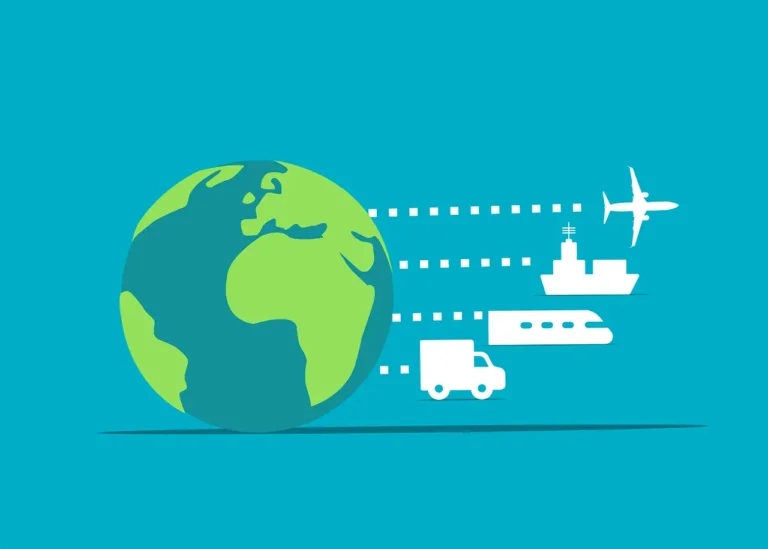It’s a good thing that supply chain technology gets the attention it deserves
says Dwight Klappich, VP Analyst, Gartner.
Digital Supply Chain Transformation: How to Revolutionize Your Business Processes
“However, emerging supply chain management technologies are often overhyped, and leaders must aim to fully understand the risks as well as opportunities associated with each new technology.” The next three to five years can be not solely a rise within the adoption of digital supply chain technologies, However, additionally new, additional IT-focused roles that supply chain leaders should integrate. In addition to this, The driving force of this example amendment has been the broad sweeping effects of COVID-19. Hence, A world economic recession, trade wars, and new client expectations.
- Digital Supply Chain Transformation: How to Revolutionize Your Business Processes
- 1. Digital Giants Incursion:
- 2. Rise Of The Startups:
- 3. Pandemic-Proof Supply Chain:
- 4. Sustainable Logistics:
- 5. Blockchain-Enabled Digital Ecosystems:
- 6. Logistics As A Service (LaaS):
- 7. Computing Is Pushed To the edge:
- 8. Digital Twins of Everything:
- 9. Driving supply:
- 10. Predictive Logistics Insights:
1. Digital Giants Incursion:
Traditional logistics suppliers are under attack. So, With parcel volume expected to achieve sixty five billion packages for Amazon supply by 2022, the corporate might exclude an oversized share of e-commerce packages.
Also Read: How TO Be A Transactional Leader In the VUCA World
2. Rise Of The Startups:
The Covid-19 pandemic has not slowed but accelerated digital transformation in supply which has already drawn massive sums of working capital (VC) and personal equity.
3. Pandemic-Proof Supply Chain:
The global pandemic has had pervasive and deep impacts across material availability, labor support, asset tracking as well as security of logistics services.
Also Read: Best Books
4. Sustainable Logistics:
Growing CO2 emissions, pollution and waste generated by world supply are golf stroke additional targets for the supply industry’s environmental responsibilities. Moreover, According to Frank Appel, CEO of Deutsche Post DHL, sustainability is an essential issue for logistics.
5. Blockchain-Enabled Digital Ecosystems:
Logistics juggernauts like FedEx, UPS, and Uber Freight are simply a number that have joined the blockchain. Further, It enabled a supply digital scheme known as the Blockchain in Transport Alliance (BiTA).
Handpicked for our Leaders: supply chain transformation strategy
Leader’s Tip:
Adopt a customer-centric mindset and match your digital endeavors to your customers’ shifting demands and preferences.
6. Logistics As A Service (LaaS):
Logistics has become an important capability for corporations. Such a lot so, in line with a 2020 list of outsourcing trends from Gartner. “Over eightieth of execs indicate that they intend to considerably increase supply outsourcing budgets on the far side of repositioning and fulfillment in 2020.”
7. Computing Is Pushed To the edge:
Edge computing has made its way to the supply chain through the evolving nature of operational technology (OT) sensors, the Internet of Things (IoT), and also 5G. Hence, Unlocking how data is obtained, processed, and analyzed enables for the required low-latency processing and real-time analytics needed.
8. Digital Twins of Everything:
As the physical and digital worlds begin to converge, organizations are digitally unlocking new insights, simulations, and period pursuit. Moreover, Making digital twins pulls relevant knowledge that’s captured across the provision chain through IOT sensors and different technologies to be delineated in virtual or simulation environments.
9. Driving supply:
From self-driving trucks and virtual assistants to robotic-powered warehouses and also drone delivery, AI enablement can amend the face of supply. It’s additionally a race to amass these capabilities. In line with another IDC prediction.
10. Predictive Logistics Insights:
With ninety three of shippers and ninety eight of third-party supply corporations feeling like data-driven decision-making is crucial to produce chain activities and sixty three of the most important and most impactful supply organizations, spoken communication investment in knowledge is competitive.
Leader’s Tip:
Create a seamless and agile digital supply chain ecosystem by working with critical partners, suppliers, and stakeholders.
FAQs:
Why is digital transformation important in the supply chain?
Digital transformation enhances supply chain capabilities, streamlines processes, enables real-time data insights, improves customer experience, and increases overall competitiveness in today’s fast-paced business environment.
What are the key steps to have a successful digital supply chain transformation?
Some key steps for a successful digital supply chain transformation include digitizing processes, adopting advanced analytics, leveraging automation and robotics, integrating systems, and fostering collaboration.
Key Takeaways
- Improve supply chain visibility as well as a performance by utilizing real-time data analytics to gain actionable insights and make data-driven decisions.
- Invest in cutting-edge technologies like AI, blockchain, and IoT to improve supply chain traceability, operational efficiency, and risk management.
- Foster a culture of innovation and equip your workforce with digital skills to drive successful digital supply chain transformation.

